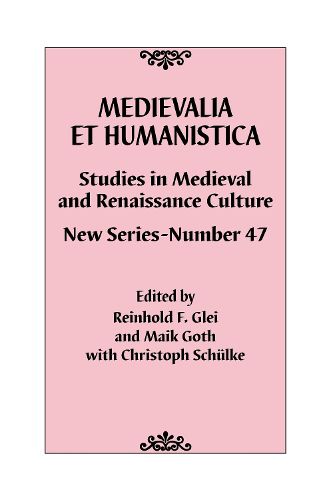Readings Newsletter
Become a Readings Member to make your shopping experience even easier.
Sign in or sign up for free!
You’re not far away from qualifying for FREE standard shipping within Australia
You’ve qualified for FREE standard shipping within Australia
The cart is loading…






Since its founding in 1943, Medievalia et Humanistica has won worldwide recognition as the first scholarly publication in America to devote itself entirely to medieval and Renaissance studies. Since 1970, a new series, sponsored by the Modern Language Association of America and edited by an international board of distinguished scholars and critics, has published interdisciplinary articles. In yearly hardcover volumes, the new series publishes significant scholarship, criticism, and reviews treating all facets of medieval and Renaissance culture: history, art, literature, music, science, law, economics, and philosophy.
Volume 47 showcases a variety of transnational and translingual perspectives, analyzing the works of humanist authors from across Europe, and how language can affect the interpretation of the literature. It expands beyond the Eurocentric appraisal of medieval works and takes into consideration a broader response.
$9.00 standard shipping within Australia
FREE standard shipping within Australia for orders over $100.00
Express & International shipping calculated at checkout
Since its founding in 1943, Medievalia et Humanistica has won worldwide recognition as the first scholarly publication in America to devote itself entirely to medieval and Renaissance studies. Since 1970, a new series, sponsored by the Modern Language Association of America and edited by an international board of distinguished scholars and critics, has published interdisciplinary articles. In yearly hardcover volumes, the new series publishes significant scholarship, criticism, and reviews treating all facets of medieval and Renaissance culture: history, art, literature, music, science, law, economics, and philosophy.
Volume 47 showcases a variety of transnational and translingual perspectives, analyzing the works of humanist authors from across Europe, and how language can affect the interpretation of the literature. It expands beyond the Eurocentric appraisal of medieval works and takes into consideration a broader response.